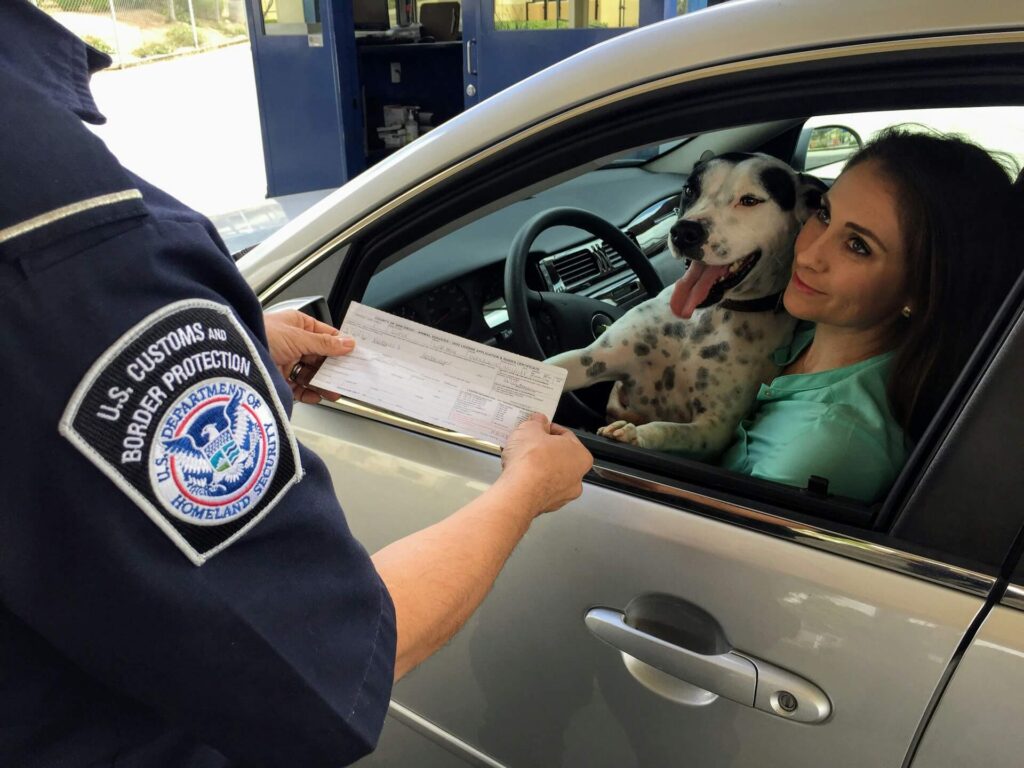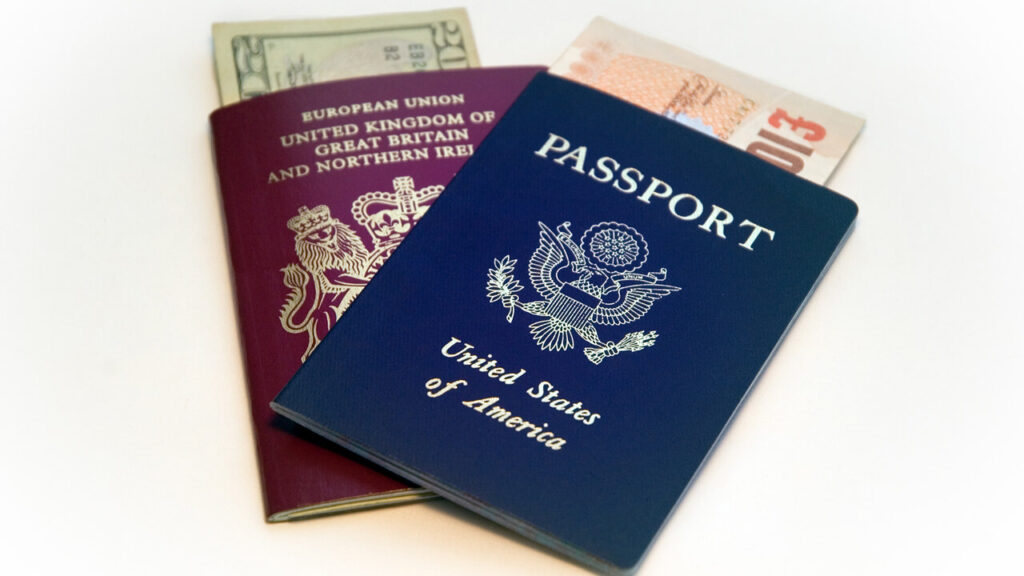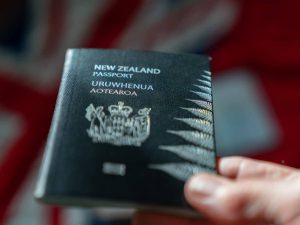Following an extended flight, few sensations rival the satisfaction of effortlessly gliding past the customs queue and smoothly navigating through immigration.
Related article: Unveiling 5 Travel Hacks On How To Book Cheap Flights
Related article: Breaking News! Finland Alters Its Visa Requirements
For the majority of British nationals, relishing this experience is now confined to returning to the UK—unless you manage to acquire dual citizenship.
In the last decade, a considerable number have pursued this option. In 2021, the Office for National Statistics reported that 1.26 million residents in England and Wales possessed dual citizenship, a notable increase from 612,000 in 2011.
Wondering how to become part of this group? Dive into the details of obtaining dual citizenship with the following guide.

The Dynamics of Dual Citizenship
The regulations pertaining to dual citizenship differ across nations. Essentially, if both countries you aspire to be citizens of permit dual citizenship, you can attain the status of a “dual citizen” in those specific countries.
Approximately 60 to 70 countries allow dual citizenship, including the UK. Most countries in North, Central, and South America, along with Australia and New Zealand, allow this status. However, in Europe, Africa, and Asia, such arrangements are less prevalent.
Moreover, the stringency of regulations varies among countries. For instance, the Netherlands currently boasts some of the strictest dual citizenship rules in Europe. This often involves individuals renouncing their original citizenship when applying for Dutch citizenship or forfeiting Dutch citizenship if Dutch nationals seek to adopt another nationality.
Currently, there are purported plans to relax these regulations; however, as it stands, dual citizenship is permissible under specific conditions. These include having ancestral ties to the country, being married to a Dutch passport holder, or being unable to renounce citizenship in your country of origin.
In contrast, citizens of India and China face automatic loss of their birth citizenship upon acquiring American citizenship.
Before committing to a decision, it’s advisable to thoroughly research the country you’re considering for dual citizenship. Familiarizing yourself with potential inconvenient regulations is a prudent step in making an informed choice.

What advantages does it offer?
Upon attaining dual citizenship, you gain the freedom to reside and work indefinitely in either country. Furthermore, it presents additional opportunities. For instance, obtaining Italian citizenship grants you the privilege to live, work, and study in any European Union country without the necessity of a visa.
“It provides the freedom to travel to countries that might otherwise require cumbersome visa processes,” notes Tahmina Watson, a U.S.-based immigration lawyer. “And, of course, who wouldn’t want to bypass long lines at airport immigration clearances? Citizens often breeze through these checkpoints.”
Being a citizen also grants you access to the country’s health services, public education, property ownership, and even the possibility of holding public office in either country (usually not both).
The advantages of dual citizenship extend to your family members as well. In many countries, citizenship can be passed down to future generations. In places like the United States, you may have the opportunity to sponsor immediate family members in their endeavors to relocate.

Are there any drawbacks associated with holding dual citizenship?
It’s not as straightforward as “double the citizenship, double the benefit.” Dual citizenship entails adhering to the laws and regulations of two countries, including tax considerations, which can introduce complexity.
While some countries have double taxation agreements (such as Britain and Australia) to prevent dual citizens from paying tax twice on the same income, challenges may arise. For instance, acquiring American citizenship requires paying US taxes, even if you reside in Britain. Many Americans have renounced their citizenship due to this taxation rule, as mentioned by Ms. Watson.
Additionally, if you possess assets in the other country of citizenship, the taxation and handling of these assets upon your death are likely subject to the laws of that country and your residence, complicating succession planning.
In various European countries, forced heirship rules prevail, wherein biological children and spouses automatically inherit equal shares of an estate upon a parent’s demise, irrespective of any contrary wishes outlined in a will.
Citizenship often entails not only rights but also duties, such as potential obligations to military service or jury duty. Although Italy currently lacks mandatory military service, as noted by Adamo Petrucci Horn from the Italian Citizenship Assistance Program, circumstances may change in the future, potentially subjecting dual citizens to conscription if reinstated.
Furthermore, dual citizenship may impose constraints on the assistance one receives from the British government while residing overseas.
According to Claire Nilson, an immigration lawyer at Faegre Drinker, during an emergency, obtaining diplomatic assistance from the British government might be unlikely if you are currently situated in the other country of your citizenship.
She further explained, “In specific nations, this might even involve restrictions on allowing their citizens to depart for international travel at certain times.” Such regulations were observed during the Covid pandemic.

Everything you need to know About How To Apply For Dual Citizenship
Securing citizenship in another country typically follows three primary routes. Firstly, there’s the family route. Some countries grant citizenship eligibility if one of your parents, or even your grandparents, is or was a citizen of that particular country. Marrying someone from the country can also lead to automatic citizenship or an expedited application process. British citizens often pursue dual citizenship through this avenue with countries like Ireland, Poland, Pakistan, Nigeria, and Italy.
Alternatively, one can pursue citizenship through work. This involves relocating to another country and working under the sponsorship of an employer. After residing and working for a specified period, certain countries may allow you to apply for permanent residency and, subsequently, citizenship. Many Britons opt for this path to attain dual citizenship in countries such as America, Canada, Australia, New Zealand, and South Africa.
The third pathway is referred to as “citizenship by investment.” While not available for those seeking citizenship in Britain, certain countries, like Malta and Cyprus, offer the opportunity to acquire citizenship by making substantial investments in the economic and infrastructural development of that particular nation.
It’s primarily restricted to individuals with exceptionally high net worth. According to Ms. Nilson, “Such investments usually amount to hundreds of thousands of pounds, and in some instances, surpassing £1 million.”

Ireland As The Best Alternative For Dual Citizenship
Following Brexit, a significant number of Britons turned to their nearest neighbor to facilitate easier access to the EU.
Between 2011 and 2021, the count of UK residents obtaining an Irish passport surged six-fold, with 64,000 British citizens applying for one in the year subsequent to the Brexit referendum.
Securing Irish citizenship can be achieved through two primary routes;
Irish Dual Citizenship By Descent
To acquire Irish dual citizenship by descent, is necessary for one of your grandparents to have been born on the island of Ireland, or alternatively, one of your parents should have held Irish citizenship when you were born
In such cases, the initial step involves registering your birth in the Foreign Births Register, which entails providing documentation of your lineage from either an Irish-born grandparent or a parent who is an Irish citizen.
You will probably be required to submit your birth certificate, along with the birth certificates and passports of your grandparents or parents.
Irish Dual Citizenship By Naturalization
To attain Irish dual citizenship through naturalization, you must reside in Ireland for a minimum of four years, with one of those years immediately preceding your application. If you happen to marry an Irish citizen, this requirement reduces to living in the country for at least three of the past five years.

Extra Requirements For Irish Dual Citizenship
Additionally, eligibility criteria include being 18 or older and maintaining a “good character.” Although there are no strict guidelines defining this, the Garda Síochána, Ireland’s national police, are responsible for providing a report detailing your criminal record, driving offenses, ongoing investigations, pending criminal cases, as well as any cautions or civil cases in which you may be involved in. This information is considered as part of your citizenship application.
Unprecedented Amount Of British Dual Citizenship
In 2021, a total of 56,200 British citizens were also recognized as American citizens, marking the most prevalent case of dual citizenship, as reported by the Office of National Statistics. This occurrence is noteworthy considering the typically prolonged and intricate nature of the dual citizenship acquisition process.
“Becoming a dual citizen involves navigating the intricate and antiquated US immigration system,” highlighted Ms. Watson. “Securing US citizenship is neither swift nor straightforward; it’s a multi-step process.”
To initiate this process, individuals must first attain legal permanent residence status, commonly referred to as a “green card.” The conventional route involves obtaining it through a temporary work visa, although British citizens are also eligible for the Treaty Investor visa, permitting them to establish a business in the United States.
After maintaining a green card for five years (or three years if married to a U.S. citizen), you become eligible to seek U.S. citizenship.
In addition to the previously mentioned criteria, you must be at least 18 years old, have fulfilled U.S. tax obligations during your green card tenure, show evidence of spending at least 30 months in the U.S. before applying, possess a commendable “moral character” (evaluated based on your green card duration, assessed for any significant criminal charges), and successfully pass both a written and verbal English proficiency test.











